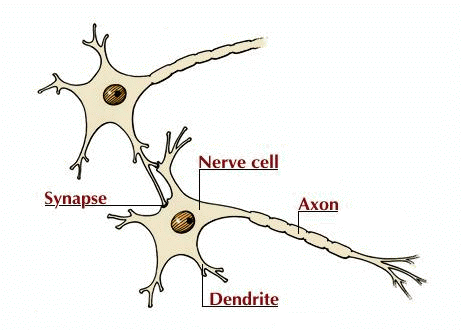Introductory Neuroscience

Material to be covered
A variety of topics and issues relating to neuroscience will be covered.
Some of these topics are listed below:
Neuroanatomy
The structure and function of the human nervous system. Cell differentiation in the brain and cytoarchitectonic maps. The structrure and function of the cerebral cortex, including hemispheric interconnections. Sub-cortical structures and the brain stem. Where did you get your brains?
The influence of genetics and experience on brain development.Neurophysiology and neurochemistry
The anatomy of nerve cells and the molecular biology of the synapse. Neurotransmitters, neurohormones and other neurochemicals; their roles in brain function and behaviour. Regulation of neurochemicals and the postsynaptic macromolecular receptor complex. Psychopharmacology - how drugs that act on the central nervous system exert their effects and alter behaviour.Neuropsychology
Beyond phrenology: lateralisation and localisation of function. Theories of brain function and organisation. Assessing brain injury. Neuropsychological test batteries. Epilepsy, the amnesias, disconnection syndromes and split brains. The case of Phineas Gage, then and now.Imaging the brain
An exploration into techniques such as PET (positron emission tomography), CT (computed tomography), MRI (magnetic resonance imaging) and functional MRI in assessing the structure and function of the brain. Other 'state-of-the-art' imaging techniques such as MEG (magnetoencephalography) and 3D-computed reconstruction techniques are also examined.Neuropathology
What happens to the brains of individuals suffering from various neurodegenerative illnesses such as Alzheimer's disease and Parkinson's disease? The varying pathologies of these disorders is considered along with current and future prospects for treatment.Neuropsychiatry and abnormal behaviour
The DSM IV and mental illness: medical and cultural thoughts. An exploration of the symptomatologies, proposed aetiologies (or development), and available treatments for the various types of schizophrenia. Other psychiatric conditions, including obsessive-compulsive disorder and manic depression.Brain, immunity and disease
The autonomic nervous system and its importance in health and illness. The role of behaviour, cognition and lifestyle in coronary heart disease. Psychoneuroimmunology as a proposed mechanism for explaining how mood and mental state might affect disease prognosis? Methodological and practical considerations in researching this area.
Why a neuroscience tutorial?
Aims of the tutorial
Which
students will benefit?
Tutorial format
Download
tutorial pamphlet
Medical
Genetics
|
Methods In Molecular Biology |
Epidemiology & Statistics In Clinical Practice
Brain Day For The Health
& Emergency Services |
Stress
& Health Management
DNA Day |
Stress Day
Copyright
© MBI, Medical Biology Interactive, 2007.